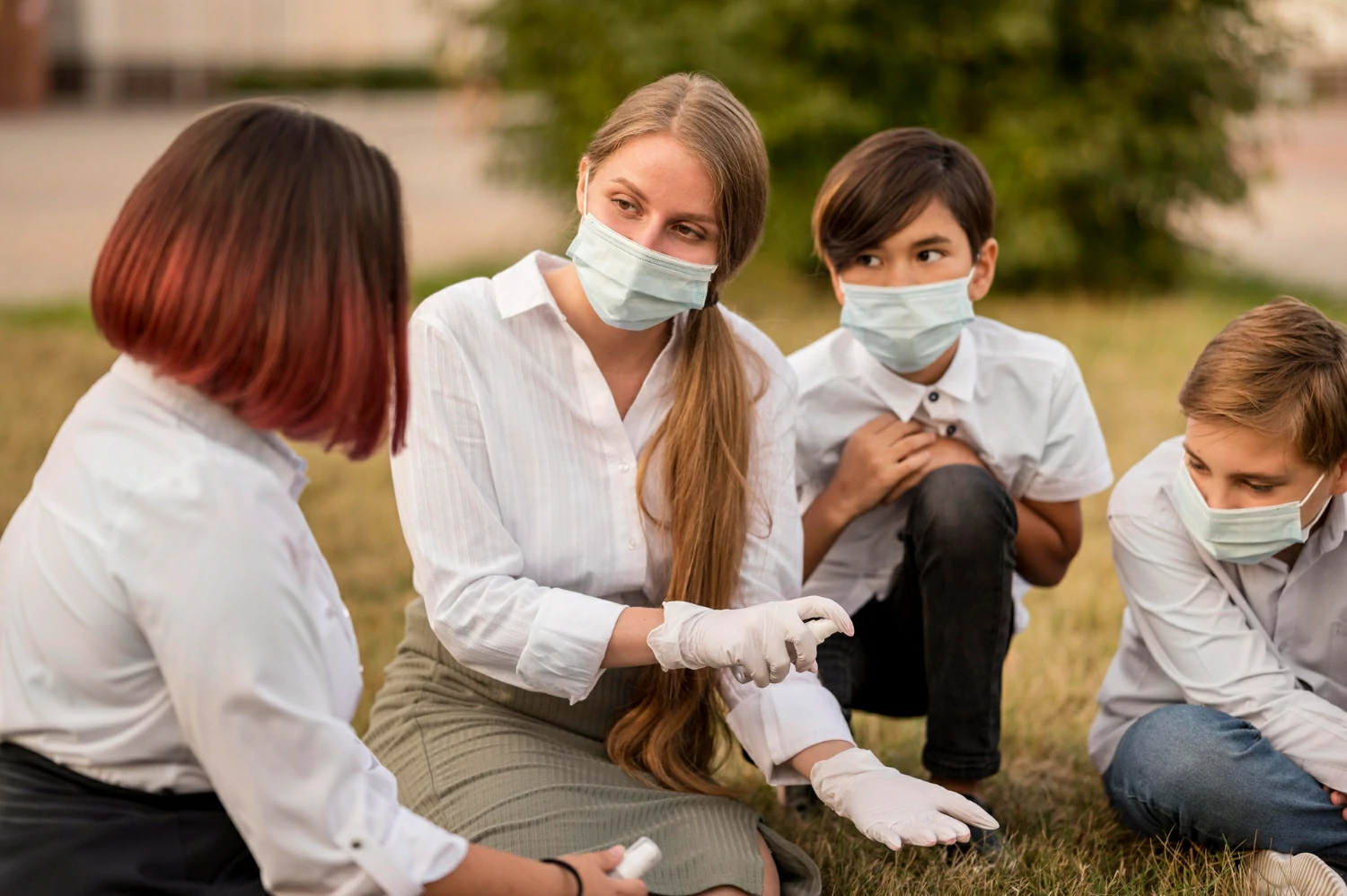Can CPS take my child for living in a hotel? Answer is – CPS (Child Protective Services) cannot take your child away solely for living in a hotel. However, if the hotel conditions are unsafe, unsanitary, or put your child’s well-being at risk, CPS may intervene. Their primary focus is the child’s safety, and they assess situations on a case-by-case basis.
Summary
- CPS’s primary concern is the child’s safety and well-being.
- Living in a hotel itself is not grounds for CPS to remove a child.
- If the hotel environment is harmful (unsanitary, dangerous, etc.), CPS may take action.
- Parents should take steps to ensure the hotel environment is as safe and suitable for their child as possible.
Can CPS Take My Child for Living in a Hotel?

What is CPS?
Child Protective Services (CPS) is a government agency found in every state across the U.S. Their primary responsibility is to protect children from abuse, neglect, and any situation that puts their safety or well-being at risk.
CPS has the authority to investigate reports of potential harm to children and, if they find evidence to support the claim, intervene to ensure the child’s safety.
CPS’s Role in Child Safety
CPS caseworkers play a complex and often challenging role. Here’s an overview of what they do:
Investigate Reports: CPS receives reports of suspected child endangerment from various sources, including concerned neighbors, teachers, doctors, and family members. Caseworkers investigate each report thoroughly to determine its validity.
Assess Risk: If a report seems credible, CPS assesses the child’s current living situation and potential risks to their well-being. This might involve home visits, interviews with parents, the child, and other relevant individuals.
Intervene When Necessary: If CPS determines a child is in immediate danger, they have the authority to remove the child from the home and place them in temporary foster care or with relatives.
Provide Support Services: In many cases, the goal of CPS is to keep families together safely. They often provide resources and support services to families, such as parenting classes, counseling, or financial assistance, to help address underlying issues.
Work with the Courts: CPS might present cases to the legal system if they need court orders for removal or if there are criminal charges involved.
Lisa Davis Expert Opinion
“CPS workers often walk a fine line between protecting children and respecting the rights of parents. Their goal is always to find the best possible outcome for the child, but these cases can be incredibly complex.” – Lisa Davis, Child Welfare Social Worker with over 15 years of experience.
Can CPS Take My Child for Living in a Hotel?

The short answer is: CPS cannot remove a child from your care solely because you are living in a hotel. However, there are crucial situations where CPS might intervene if they believe a hotel environment poses a risk to a child’s safety or well-being.
1. Understanding the Legal Basis for CPS Intervention
CPS operates under specific state laws that outline the conditions under which they can take temporary or permanent custody of a child. These laws generally fall under the following categories:
Neglect: Neglect occurs when a parent or guardian fails to provide a child’s basic needs, such as food, shelter, clothing, medical care, or supervision.
Abuse: Abuse can be physical, emotional, or sexual. It involves any act that inflicts harm or potential harm to a child.
Endangerment: This refers to situations where a child is placed in an environment that poses a significant risk of harm, even if actual abuse or neglect has not yet occurred.
2. Factors CPS Considers When Assessing a Child’s Living Situation
Temporary housing, like a hotel, can raise concerns, but CPS looks at several factors before deciding if intervention is necessary:
Sanitary Conditions: Is the hotel clean and well-maintained? Are there health hazards present, such as mold, pests, or unsafe structures?
Basic Needs: Does the child have access to sufficient food, clean water, proper clothing, and a safe place to sleep?
Supervision: Is the child adequately supervised at all times? Are there dangers in the hotel or surrounding area that the child is not protected from?
Stability: How long has the family been living in the hotel? Frequent moves and lack of routine can be disruptive to a child’s development.
Educational Needs: Is the child enrolled in school and attending regularly? Can they complete schoolwork in the hotel environment?
Emotional Well-being: Does the hotel environment create stress or anxiety for the child? Are their emotional needs being met?
Dr. Emily Peterson Expert Opinion
“CPS understands that families sometimes face temporary housing challenges. Their focus is not to punish parents but to ensure the child is safe. If a hotel environment is deemed unsuitable, CPS’s first step is often to work with the family to find a more stable and appropriate living situation.” – Dr. Emily Peterson, Child Psychologist specializing in family welfare.
Risks of Living in a Hotel with a Child

While hotels can provide a temporary solution during housing transitions, extended stays can present unique challenges for families, particularly when it comes to the well-being of children. Here’s a closer look at some of the key risks:
1. Potential Safety Hazards in Hotels
Unfamiliar Environment: Hotels are filled with potential dangers that children may not be accustomed to, such as balconies, elevators, pools, and stairwells. Increased vigilance is needed to prevent accidents.
Cleaning Chemicals & Hazards: Hotels use strong cleaning products and may have pest control measures that could be harmful to young children if unsupervised.
Fire Safety: Evacuation procedures in a hotel can be more complex than in a familiar home. Parents need to be extra prepared in case of an emergency.
Strangers: Hotels have a constant flow of guests and staff, increasing the risk of a child encountering strangers with potentially harmful intentions.
2. Lack of Stability and Routine
Disrupted Sleep: Hotel rooms can be noisy, and the change in environment can disrupt a child’s sleep patterns, leading to irritability and behavioral problems.
Unpredictability: Hotels lack the familiar surroundings and predictability of a home. This can be unsettling for children, especially younger ones, who thrive on routine.
Social Isolation: Limited space in hotel rooms and a transient environment can make it difficult for children to form friendships and engage in typical social activities.
3. Limited Access to Necessities
Healthy Meals: Hotel living often means relying on takeout or restaurant food, which can lack nutritional value. Limited kitchen facilities make preparing balanced meals challenging.
Play and Exploration: Hotels typically lack suitable play areas, both indoors and outdoors. This restricts a child’s ability to engage in active play and developmentally important exploration.
Laundry and Hygiene: Depending on the hotel, laundry facilities might be limited or inconvenient, making it difficult to maintain adequate hygiene, especially for young children.
4. Challenges of Providing Adequate Supervision
Cramped Quarters: The confined space of a hotel room makes it difficult to keep a constant eye on children, particularly toddlers or active youngsters.
Distractions: Hotels are full of distractions, from the TV and room service to the activities of other guests. These can make it harder for parents to maintain focused supervision.
Limited Support: If traveling alone with a child, a parent might lack the support system they would usually have at home, making round-the-clock supervision even more demanding.
Dr. Sarah Miller Expert Opinion
“Children need a sense of stability and predictability to feel safe and secure. Extended hotel stays disrupt these crucial elements, potentially impacting a child’s emotional well-being and development” – Dr. Sarah Miller, Developmental Psychologist.
How to Make Hotel Living Safer for Your Child

While there are inherent challenges to living in a hotel with children, parents can take proactive steps to minimize risks and create a more positive environment. Here’s how:
1. Choosing a Reputable and Well-Maintained Hotel
Research: Read online reviews and look for hotels that prioritize cleanliness and guest safety. Consider family-friendly hotels that may offer amenities like play areas or child-friendly pools.
Location: Choose a hotel in a safe neighborhood with easy access to essential services like grocery stores, pharmacies, and parks.
Security: Inquire about the hotel’s security measures, such as controlled entry points, secure elevators, and in-room safes for valuables.
2. Creating a Designated “Home” Space Within the Hotel Room
Familiar Items: Bring some comforts from home, such as a favorite blanket, stuffed animal, or bedtime books. These can help a child feel more secure in unfamiliar surroundings.
Defined Areas: Use furniture or suitcases to create separate zones for sleeping, eating, and play if space allows. This adds a sense of structure and predictability.
Personalize: If possible, let your child decorate their designated space with drawings or photos from home.
3. Establishing Routines and Schedules
Maintain Bedtimes: As much as possible, stick to your child’s regular bedtime routine. This includes bath time, reading stories, and a consistent sleep schedule.
Regular Mealtimes: Plan for regular meals and snacks, even if it means relying on simple, portable options or ordering takeout from healthier restaurants.
Activity Time: Schedule time for active play. Explore nearby parks, visit a children’s museum, or find other ways to get your child moving and expending energy.
4. Ensuring Constant Supervision
Eyes on the Child: Never leave a child unattended in a hotel room, even for short periods. Take them with you for bathroom breaks or room service interactions.
Utilize Technology: Consider using a baby monitor or video chat to keep an eye on an older child if you need to briefly step out of the room.
Be Aware of Surroundings: Supervise your child closely in common areas like hallways, pools, and elevators. Be mindful of strangers and reinforce safety rules with your child.
5. Addressing Potential Dangers
Childproofing: Bring a basic childproofing kit with outlet covers, furniture corner protectors, and door safety devices.
Balcony Safety: If your room has a balcony, make sure the door is securely locked at all times. Do not allow children on the balcony unsupervised.
Window Safety: Be aware of potential fall hazards from windows. Request a lower-level room if possible, and keep furniture away from windows.
Cleaning Supplies: Store any cleaning supplies brought from home or provided by the hotel out of a child’s reach.
Emily Barnes Expert Opinion
“Adaptability is key when it comes to hotel living with kids. Focus on maintaining some sense of normalcy with familiar routines while taking extra precautions to ensure their safety in a new environment” – Emily Barnes, Family Travel Blogger and Mom of two.
When CPS Might Get Involved

It’s important to reiterate that CPS does not seek to remove children from families simply because they are living in a hotel.
However, there are specific scenarios where CPS intervention might become necessary to protect a child’s safety. Here’s a breakdown of factors that could lead to an investigation:
1. Signs of Neglect or Abuse
Physical Abuse: CPS investigates any reports of physical harm inflicted on a child. These include bruises, unexplained injuries, burns, or signs of maltreatment.
Neglect: Signs of neglect might include a child appearing consistently unkempt, malnourished, lacking appropriate clothing for the weather, or being left unsupervised for unsafe periods.
Emotional Abuse: While harder to detect, emotional abuse can leave lasting scars. Indications might include a child exhibiting extreme behavioral changes, withdrawal, anxiety, or appearing fearful in their interactions with the parent.
Medical Neglect: Failure to provide necessary medical care for a child, whether due to financial constraints or other reasons, can be grounds for CPS intervention.
2. Reports of Unsafe Conditions
CPS receives reports of suspected child endangerment from various sources, including:
Concerned Neighbors or Hotel Staff: If witnesses observe unsafe conditions within the hotel room, a child being left alone, or other worrying behaviors, they might report this to CPS.
Teachers and Mandated Reporters: Teachers, doctors, and childcare providers are legally obligated to report any suspected abuse or neglect. If a child expresses concerns about their home life or shows signs of mistreatment, they are required to alert authorities.
Family or Friends: Extended family members or friends concerned about a child’s well-being might contact CPS if they believe the child is at risk.
3. Concerns about the Child’s Well-being
Even without outward signs of abuse, CPS might intervene if the hotel environment seriously jeopardizes a child’s overall well-being. Factors that could trigger concern include:
Exposure to Hazards: If a child is consistently exposed to safety hazards within the hotel room or surroundings that the parent fails to address, this could be considered endangerment.
Lack of Basic Necessities: If a child lacks adequate food, clean clothing, or basic hygiene due to the hotel living situation, this could prompt investigation.
Educational Disruption: Prolonged hotel stays with no effort to ensure the child is enrolled in school or has a means of continuing their education can be a cause for concern.
Emotional Distress: Signs that the hotel environment is causing the child significant anxiety, fear, or impacting their emotional development might lead CPS to intervene.
Mark Johnson Expert Opinion
“CPS caseworkers have a difficult job balancing the rights of parents with the overarching mandate to protect children. In hotel living situations, their primary focus is on whether the child’s basic needs are consistently met and if any immediate safety risks are present.” – Mark Johnson, Child Protective Services Supervisor with over 10 years in the field.
What to Do if CPS Contacts You

Facing an investigation by CPS can be incredibly stressful for any parent. It’s essential to be informed about your rights, understand the process, and know when to seek professional help.
1. Your Rights as a Parent
Right to Remain Silent: You are not legally obligated to answer all questions from CPS without a lawyer present. It’s generally advisable to consult an attorney before speaking extensively with CPS.
Right to Refuse Entry: Except in emergencies or with a court order, you can deny CPS entry into your hotel room.
Right to Documentation: Ask the CPS worker for their name, contact information, and the nature of the allegations against you. Keep a record of all interactions.
Right to an Interpreter: If English isn’t your first language, you can request an interpreter to assist during CPS interactions.
2. Cooperating with CPS
While it’s important to know your rights, a degree of cooperation with CPS can often help resolve the situation more smoothly. Here’s how to approach this:
Be Respectful: Even if you’re frustrated or upset, treat the CPS worker with respect. Hostility could make the situation worse.
Provide Basic Information: You can share basic details like your name, address, and the child’s information.
Ask Questions: Ask for a clear explanation of the concerns CPS has and the steps involved in their investigation.
Address Basic Concerns: If the CPS worker has immediate safety concerns (e.g., the room being extremely unsanitary), take steps to rectify the situation if possible. This demonstrates your willingness to ensure your child’s well-being.
3. Seeking Legal Counsel if Necessary
In certain situations, it’s crucial to have an attorney advocate on your behalf:
Serious Allegations: If you face accusations of abuse or severe neglect, contact a lawyer immediately.
Child Removal: If CPS attempts to remove your child, you need legal representation to protect your parental rights.
Feeling Pressured: If you feel coerced or threatened by CPS, an attorney can advise you on how to proceed.
System Involvement: If you have a history with CPS or other social services, consulting a lawyer is a wise precaution.
Sarah Bell Expert Opinion
“While CPS investigations are stressful, remember that caseworkers often want to work collaboratively with parents to ensure the best possible outcome for the child. Knowing your rights and seeking legal advice when necessary will strengthen your position.” – Sarah Bell, Family Law Attorney specializing in CPS cases
Alternatives to Hotel Living

Prolonged hotel stays can be costly, stressful, and ultimately detrimental to a family’s well-being, especially when children are involved. Fortunately, there are often more suitable and affordable alternatives available:
1. Temporary Housing Options
Extended Stay Hotels: Some hotels specialize in extended stays, offering amenities like kitchenettes and sometimes even separate bedrooms. These can provide more space and a slightly more “home-like” environment than a traditional hotel room.
Short-term Rentals: Websites like Airbnb and VRBO offer a wide variety of short-term rentals, from apartments and houses to individual rooms. These can provide a more comfortable and private setting for families.
Family Shelters: Many communities have shelters specifically for families experiencing homelessness. While not ideal, they offer a temporary safe space and often connect families with resources to find longer-term housing.
Transitional Housing Programs: Some non-profit organizations offer transitional housing, providing affordable apartments or houses along with support services like job training and financial counseling. This helps families regain stability.
2.Support from Family or Friends
Staying with Loved Ones: If possible, temporarily staying with supportive family members or friends can offer much-needed stability and assistance during a housing crisis.
Financial Support: Even if you can’t stay with them, loved ones might be able to provide temporary financial help toward a security deposit, first month’s rent on a new place, or essential living expenses.
3. Resources for Families Experiencing Housing Instability
2-1-1 Helpline: Dial 2-1-1 from anywhere in the United States to connect with a database of local resources, including housing assistance, food banks, and other social services.
HUD Resources: The U.S. Department of Housing and Urban Development (HUD) offers various programs to assist low-income families with finding affordable housing.
Local Non-Profits: Search for non-profit organizations in your area dedicated to combating homelessness or providing housing assistance. They might offer rental subsidies, help with finding affordable housing, or other support services.
Tenant Rights Organizations: If you’re facing eviction or landlord disputes, seek help from a tenant rights organization or legal aid society in your community.
Lisa Anderson Expert Opinion
“Living in a hotel is rarely a sustainable long-term solution for families. The priority should be finding safe, affordable housing that provides the stability children need to thrive. Don’t hesitate to reach out to local resources and support services – there are people who want to help.” – Lisa Anderson, Social Worker specializing in housing assistance.
Conclusion
Living in a hotel with children can be a challenging and stressful experience. While it might be necessary as a short-term solution during a housing transition, parents should be aware of the potential risks and take proactive steps to ensure their child’s safety and well-being.
CPS’s primary focus is always on the welfare of the child. They understand that families can face unexpected hardships. If the hotel environment becomes unsafe or significantly disrupts a child’s overall well-being, CPS might intervene with the aim of ensuring the child has a stable, suitable, and nurturing living situation.
Here are key takeaways from this discussion:
- Prolonged hotel stays can negatively impact children physically, emotionally, and developmentally.
- Parents should prioritize finding alternative housing that provides stability, safety, and access to necessities for their children.
- Resources and support services are available to assist families facing housing instability.
- If CPS contacts you, understand your rights, consider seeking legal counsel, and cooperate to the degree that protects both you and your child.
FAQs
Q: Can I go to jail if CPS finds my hotel room unsuitable?
It’s highly unlikely you’d face jail time solely for an unsuitable hotel room unless there is evidence of severe neglect or abuse. CPS usually aims to work with parents to improve the situation rather than take punitive action.
Q: Does living in a hotel automatically make me a bad parent?
Absolutely not! Life circumstances can be unpredictable, and using a hotel temporarily might be your only option. CPS understands this. Focus on doing the best you can with the resources you have to ensure your child’s well-being within the hotel setting.
Q: I’m scared CPS will take my child away. What should I do?
It’s understandable to feel anxious. If CPS contacts you, remain calm, understand your rights, and focus on demonstrating your commitment to providing a safe and nurturing environment for your child – even within the limitations of a hotel. Seeking legal advice can help you feel more empowered during this process.
Q: Where can I find help if I’m struggling with housing?
Here are some places to start:
- 2-1-1 Helpline: Dial 2-1-1 or visit
- HUD
- Local Non-profits Search online for organizations in your area dedicated to helping families with housing.
Disclaimer
The information provided in this article is for general informational purposes only and should not be construed as legal advice. If you are facing a CPS investigation or housing crisis, it is crucial to consult with a qualified attorney or social services professional in your area.







